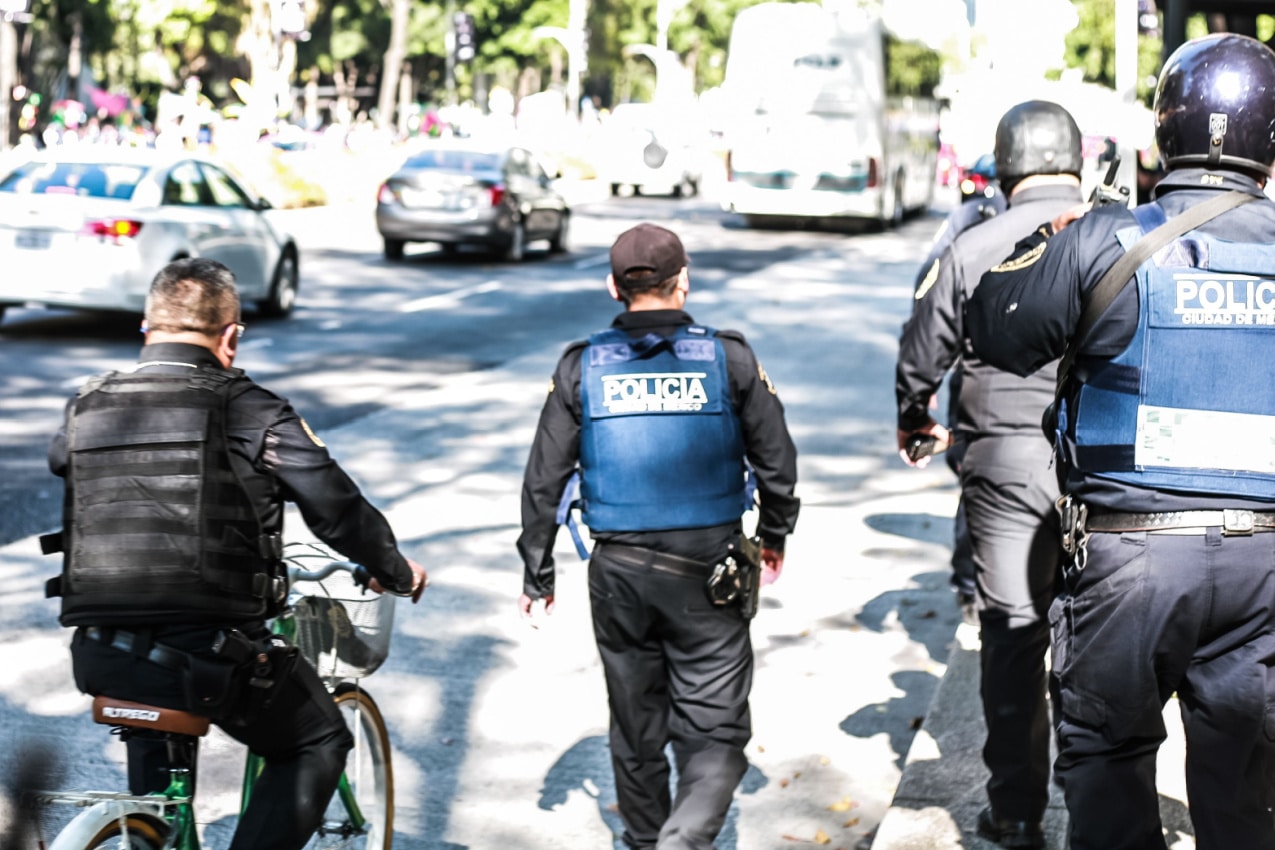When in Mexico, you must abide by Mexican law. Anyone caught breaking the law while on vacation will face full legal repercussions.
This guide will walk you through the dos and don’ts of tourist laws in Mexico, ensuring you have a blast without any legal hiccups.
Laws in Mexico: Your Passport to Fun and Responsible Vacationing

Mexico has its own set of laws, which might be different from those in your home country. Today we’ll cover the regulations on travel documents, alcohol drinking, drug possession, public behavior, and any other regulation that might be relevant to your tourist experience there.
Making the effort to familiarize yourself with them might spare you from possible legal troubles during your stay. Depending on the seriousness of the crime, you may face a criminal charge, be barred from entering the country, detained, or imprisoned.
Top 10 Tourist Laws in Mexico You Must Know
- Your passport needs to be valid for the entire length of your intended stay in Mexico
- You must obtain a tourist card (also known as a Forma Migratoria Múltiple or FMM) if you stay more than 72 hours (3 days). Tourists traveling by air can obtain the FFM from airline personnel, while those traveling by land can obtain it at Mexican immigration checkpoints along the border.
- You must have Mexican auto insurance, legal license plates, and a valid driver’s license if you are driving in Mexico
- Minors must have a notarized letter of consent if traveling alone, with one parent, or with someone other than their parents
- The legal drinking age is 18 years old or older
- Drunk driving, public intoxication, and carrying around open bottles of alcohol are illegal
- Possession and consumption of narcotics, including medical cannabis, are illegal
- Public smoking of tobacco is prohibited unless done in areas designated for smoking
- Electronic cigarettes and vaping devices are illegal to bring into Mexico
- Bringing in or carrying weapons and ammunition into Mexico is strictly prohibited
Other Important Laws to Be Aware Of
- Tourist visas are mandatory for visitors staying in Mexico for more than 180 days
- You must always carry your FFM everywhere with you as confirmation of your legal status in Mexico
- Travelers are allowed to bring up to $10,000 USD (168,249 MXN) in cash into Mexico without having to report it
- The legal limit for blood alcohol content when driving is 0.8%
- Transporting contraband without declaration is prohibited and may result in the confiscation of your vehicle and all of its contents
- You can’t carry knives, brass knuckles, or daggers
- Entering the country with a pet requires a pet health certificate, a pet passport, and a pet vaccination certificate
- It’s illegal to visit the Popocatepetl and Colima volcanoes
- Drones above 0.55lbs (250 grams) need to be registered with the Federal Civil Aviation Agency (AFAC)
- Drones are illegal for usage at archeological sites
- Climbing at the top of some Mexican pyramids is against the law
- Flying a drone above the Mexican pyramids is against the law
- You can’t possess or export archaeological artifacts from Mexico
- Professional recording and investigation of ancient sites requires permission from the National Institute of Anthropology and History (INAH).
- There are no legal restrictions on same-sex sexual relations, however, travelers should take caution when publicly identifying as LGBTQI+, as there have been reports of violence and hate crimes against sexual orientation and gender minorities.
- You can’t fish without a license permit
- It’s illegal to harm, capture, or disturb wildlife species, especially endangered or protected ones
- It’s unlawful to transport the skins of exotic animals
What if You Get Arrested in Mexico?

If you are arrested in Mexico, you have the right to contact your consular representative, who is a government official providing assistance to citizens of their own nation.
The consular representative will then provide you with an overview of Mexican law as well as a list of Mexican attorneys who will ensure your basic human rights are protected. They can also assist you in notifying friends and family. From that point on, the Consulate has no role in your case’s ongoing legal process.
Your case is then passed to the district attorney’s office, which will undertake a preliminary investigation. The police have the authority to detain you for up to 48 hours while they examine the case and determine the best course of action.
During this time, you will be asked to make a statement about your criminal offense. You have the right to be represented by an attorney and an interpreter if you do not speak Spanish.
Depending on the nature of your crime, your criminal charge may be dropped, given over for prosecution, or you may be granted bail set, which is a sum of money you must pay to be released.
If you are charged for prosecution, the judge has 72 hours to find “probable responsibility” and decide whether to release you due to a lack of evidence, set bail, or keep you in detention and proceed with the legal process.
How Does U.S. Law Differ From Mexican Law?
Mexico is a “civil law” nation whereas the United States is a “common law” nation.
Common law focuses on case law and is based on previous decisions by judges. Civil law is based on Roman law and the Napoleonic Code and concentrates on written laws rather than past court decisions.
In the United States, a single decision can establish a legal norm, which means that attorneys need to study the nature of other similar cases to make an argument. The method in Mexico is to learn the law and offer the best argument based on it.
The notion of “innocent until proven guilty” is vital in the United States. This means that the Department of Justice needs to have proof that a person has done a crime — until then, the person is innocent. In Mexico, criminals are “guilty until proven innocent” — so until there’s proof of their innocence, the Department of Justice considers them to be criminal offenders.
Conclusion
As you’ve seen from this article, there are several regulations you want to keep in mind if you’re traveling to Mexico, particularly the ones relating to your passport and a tourist card.
Others are more about respecting the public order, such as not drinking in public places, carrying weapons, or flying drones above the pyramids. Making sure you research beforehand so you are aware of these regulations means you can have a safe and enjoyable stay in Mexico.
At the end of the day, you visit Mexico for pleasure, and that includes lying on a beach in Cancun, savoring traditional food in Mexico City, or gazing at the ancient sites of Tulum.
This is just a pinch of what awaits you in Mexico. So stay informed and be a responsible traveler!



